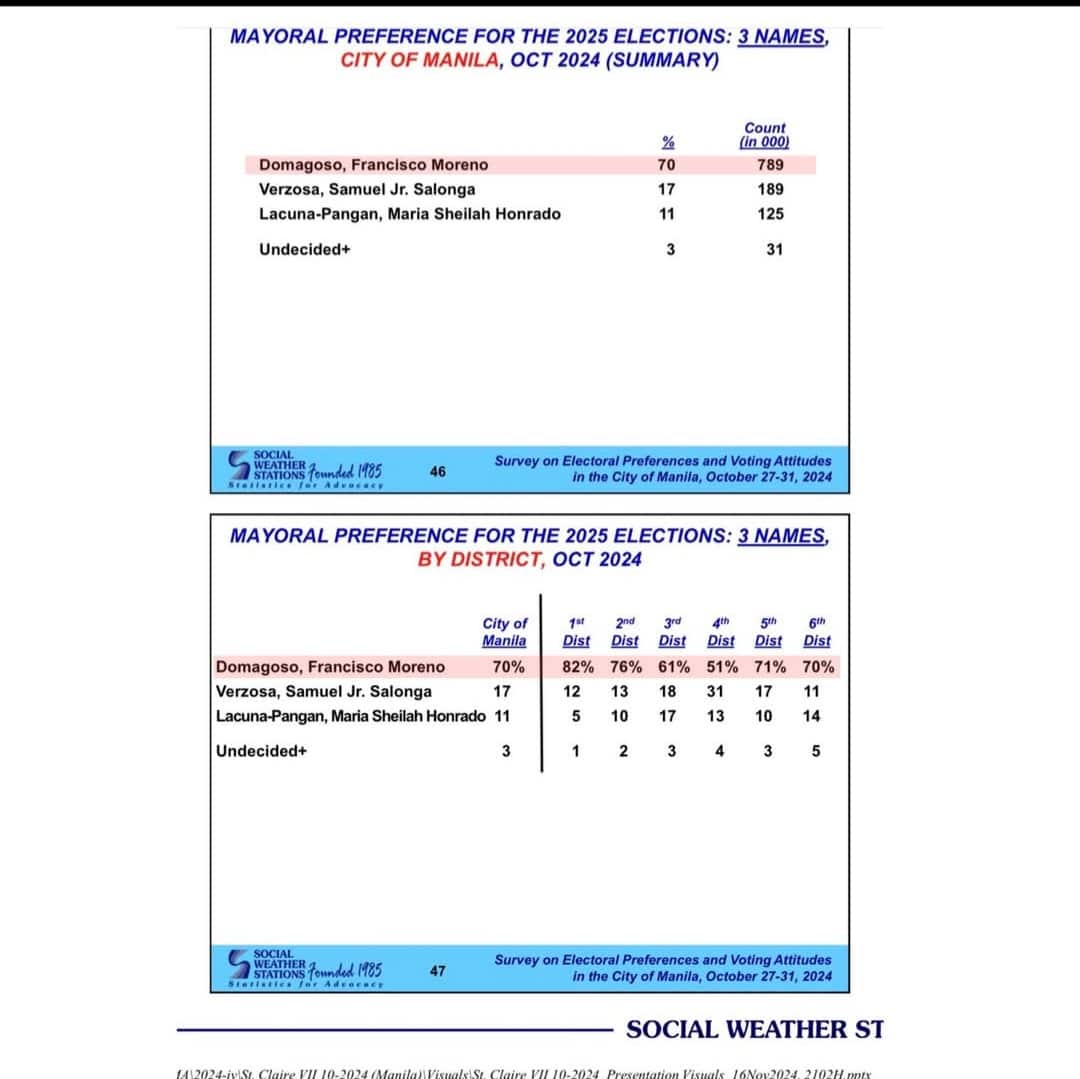In a recent survey conducted by Social Weather Stations (SWS) in October 2024, former Manila Mayor Francisco “Isko Moreno” Domagoso has emerged as the frontrunner for the upcoming 2025 mayoral elections. The poll indicates that Moreno holds a commanding lead with 70% of voter preference among Manila’s over 1.1 million registered voters. His competitors, including incumbent Mayor Honey Lacuna and Representative Sam Verzosa, trail significantly with 11% and 17% respectively.
The survey highlights Moreno’s widespread appeal across all six districts of Manila, suggesting a potential landslide victory should the elections be held today. This development marks a significant shift in Manila’s political landscape, as Moreno seeks to reclaim the mayoral seat he previously held from 2019 to 2022.
Moreno’s political journey has been marked by notable achievements and ambitious projects aimed at revitalizing Manila. His tenure was characterized by infrastructure developments and social programs that garnered both national attention and local support. After an unsuccessful presidential bid in 2022, Moreno announced his intention to run for mayor again, stating, “Let’s make Manila great again!”
Incumbent Mayor Honey Lacuna, who succeeded Moreno in 2022, has acknowledged the challenges posed by his candidacy. In response to earlier survey results indicating Moreno’s potential return, Lacuna remarked, “Well, I’m not surprised. You know Isko is already a national figure.”
Despite continuing several of Moreno’s initiatives and introducing her own programs focused on education and healthcare, Lacuna’s administration appears to be struggling with lower public visibility.
The survey results have also prompted reactions from other candidates. Representative Sam Verzosa, who garnered 17% in the poll, has yet to make a formal statement regarding his campaign strategy in light of these findings.
As the 2025 elections approach, the political dynamics in Manila are poised for intense competition. Moreno’s substantial lead reflects a strong desire among voters for his brand of leadership, while incumbent officials and other challengers face the task of bridging the significant gap in voter preference.
The SWS survey, conducted in October 2024, involved a representative sample of Manila’s voting population, with a margin of error of ±3%. The findings provide a snapshot of the current political climate, though actual election outcomes may vary as campaigns progress and voter sentiments evolve.
In the coming months, candidates are expected to intensify their efforts to engage with constituents, address pressing urban issues, and present their visions for Manila’s future. Voters, in turn, will have the critical task of evaluating these platforms to determine the leadership that will best serve the city’s interests.
As the electoral race unfolds, the citizens of Manila remain at the forefront of a democratic process that will shape the city’s trajectory in the years to come.

